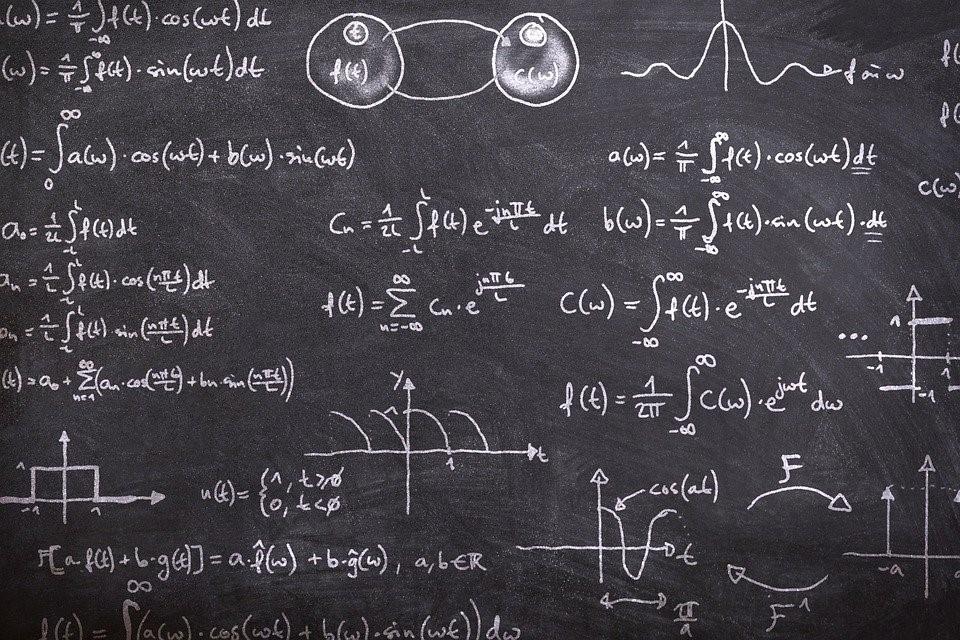Mathematics espouses some rather complex concepts. At school, it was daunting, but at university, it takes a whole new shape – a vast numerical world with countless sub-divisions based on applications.
When we break math apart, we find it to include arithmetic, algebra, and geometry. These are complex ideas that come together to provide quantitative and empirical explanations for the world around us.
Therefore, those who pursue the discipline at university either have an undying drive to succeed or a relentless desire to discover the universe's secrets!
Whatever the reason, read on as we discuss the courses required to register for a degree in mathematics:

What to Expect From Mathematics Degree
An increased number of US students are opting for majors in mathematics. In 2019 alone, there were 30,684 degrees awarded, and the number is growing by 2.48%.
Most math degrees at the undergraduate level take 3 to 4 years of full-time study in the US, while for countries like China and Australia, the 4th year is considered as honors.
In addition, some institutes also offer MMath, which is Masters in Mathematics. Once you are done with MMath, you can even apply to advanced-level math degrees.
Moreover, some of the best universities in the USA for math degrees offer placement years for students to get a job in the industry.
Opportunities like these result in countless opportunities for students to gain practical experience and implement their studies in the real world.
Meanwhile, the best math universities typically define a curriculum that includes lectures, seminars, and discussions. And students are expected to study independently to solve problem sets.
Mathematics and Its Components

Typically, a mathematics study is a combination of two components:
- Applied math: this includes practical application to the world
- Pure math: this involves theory and abstracts
Primarily, both the components are offered as one course. However, there are some institutes where these two components are presented separately for better understanding.
It is to help students purely focus on each element, and when they have complete command over one, they can move to the next. In this way, they will be open to more knowledge and have more content to grasp.
Furthermore, in top mathematics universities, these disciplines are available as a joint honors degree. In joint honors, math is accompanied by other domains:
- Business management
- Computer sciences
- Finance
- Economics
- History
- Architecture
- Sports science
- Statistics
Courses for a Degree in Math
If you intend to study maths after you leave school, you should know what courses you'd have to study to become eligible for the degree.
Obviously, a math degree will include plenty of math courses. And because you actively chose math majors, you won't mind studying arithmetic courses.
The US Bureau of Labor Statistics indicates that undergraduate math courses in most of the best mathematics universities usually include
- Differential equations
- Calculus
- Algebra
Furthermore, all the students studying math at college and university are expected to appear in at least three semesters of calculus.
Primarily, students also learn both applied linear algebra and abstract algebra. However, in some cases, programs have one more year of abstract algebra or another class with modern algebra.

What Can You Do with a Math Major in College?

In addition to understanding equations, numbers, and methodology, you also shape new skills like quantitative reasoning, probability, and problem-solving.
Equipped with these new and old skills, math majors can recreate and comprehend complex ideas and logical arguments. They are then tasked with developing intelligent solutions to tricky problems.
Who Should Major in Math at College?
Individuals who were good at math in school and have always garnered a love for the discipline should choose math as majors. For personalized local assistance, you might consider connecting with a math tutor near me.
College-level math is full of questions that are not easy to solve; hence, you won't get the answer without wrestling with the problem.
Therefore, if you feel like you have the dedication and patience for it, you can choose math as majors or even pursue it as a post-graduate or doctorate.
A degree in mathematics will require candidates to learn everything from algebra to geometry. And this process is further divided into a series of different assessments.
Every time you advance to the next level, the course work gradually increases, building a solid foundation using the previously studied concepts.
Contrary to popular belief, math is not a standalone field. Most people who excel in their math-associated careers are good team players, display good communication skills, and are willing to work in groups or under someone's authority – such as a teacher or project leader.
Their ultimate goal is to find the answers that plague a given problem while laying the groundwork to avoid such complications in the future.
Different Types of Math Majors
Mathematics is a diversified study. Numerous non-arithmetic majors also fall under the ambit of a mathematics degree.
Mathematics degrees allow students to choose specific interests and help them prepare for their desired field and career path.
To have a clear understanding of the courses involved for each type of math major, we have prepared a comprehensive list.
The list details the most popular specializations in math, such as computer science, applied math, and pure math.
However, only the standard measures are listed below. Disciplines like finance, accounts, and economics are not discussed because other departments usually offer them.
Applied Mathematics
Applied math is arguably the most commonly opted major for students hoping for a career in engineering, science, and computers.
It owes significantly to your functional knowledge, which is essential when using mathematical ideas and techniques to solve problems.
Applied math programs provide flexibility and freedom to students and enable them to work on and develop creative coursework.
Furthermore, students should be computer savvy enough to get the hang of applied mathematics because the coursework involves using algorithms and computational methods.
To get a degree in applied mathematics, students should expect classes based on:
- Calculus
- Optimization theory
- Differential equation
- Linear algebra
- Physics
- Numerical analysis
- Computation
Careers In Applied Math
Due to the flexible nature of applied math, it could lead to a wide assortment of career options in different industries. Moreover, it also enables students to continue their education for various graduate programs.
Some of the standard career options available for an applied math student are Auditor, actuary, banker, researcher, statistician, financial advisor, to name a few.
Pure Mathematics
Pure mathematics provides students with a broader understanding of abstract concepts. Moreover, it exposes the structures and concepts that underlie the term mathematics.
When studying pure math, students will encounter algebra, numerical analysis, and geometry. In addition, they will develop skills like risk analysis and critical thinking.
Taking pure mathematics as majors will compel students to study:
- Differential equations
- Real and complex analysis
- Linear algebra
- Calculus
- Geometry
- Modeling
Furthermore, the problem-solving and analytical skills resulting from pure math courses are pretty helpful in numerous other industries.
Generally, the fields relevant to pure math degree holders are finance, computing, insurance, medical research, and teaching.
Computer Science

Majors in computer science enable students to solve complex problems using computer-based tools like artificial intelligence.
However, despite being computer savvy, students must study pre-requisite math courses to complete their majors.
Having a solid basis in math lets computer science students use probabilities and statistical models to their benefit, as it makes up an essential segment of AI and tech architecture.
Individuals who are usually attracted to computer science may not have expected to be doing math; however, math is necessary to conduct research, discover, or make algorithms.
The application of math in computer science results in tangible products like self-driven cars, Google Glass, and VR technology.
Whichever intrigues you, you still need to study:
- Calculus
- Programming
- Algorithms
- Logic
- Programming language
- Data structures
- Computer science theory
When it comes to computer science, the more you study, the more you earn. Computer science is considered one of the most profitable and financially rewarding careers.
Some of the jobs you can get after completing your degree in computer science include computer engineer, technical information specialist, software engineer, computer scientist, human-computer interaction (HCI) expert, and more.
Need Help Deciding What Majors to Choose?
Deciding on a major to study is a crucial decision because, essentially, your whole career and, ultimately, your life depends on it.
However, this decision should be taken after consulting with an expert. For any queries about how to prepare for a math career, you can always reach out to Superprof.
Superprof is one of the most trusted online education platforms. With a catalog of teachers all over the globe, teaching their skills and spreading their knowledge, Superprof is revolutionizing tuition, and making finding a maths tutor easy and effective.
Students are offered a vast collection of online courses from teachers all over the globe. These courses are available through interactive one-to-one sessions.
Furthermore, all the teachers are experienced, qualified, and masters of their field.
The quality of education is excellent. Whether you want to study math, statistics, or computer science, you can always refer to Superprof.
If you ever need additional support or personalized guidance, consider searching for math tutoring near me to connect with expert tutors.
Résumer avec l'IA :















